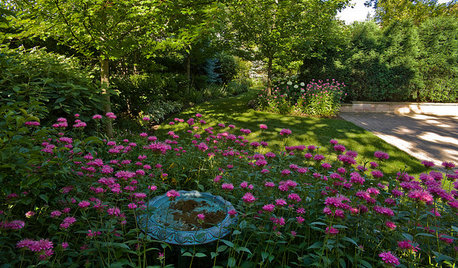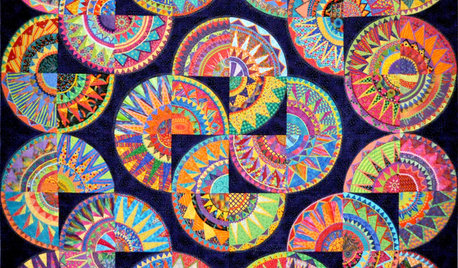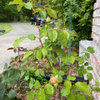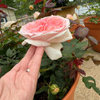What if rose care time is limited?
User
16 years ago
Related Stories

LANDSCAPE DESIGNExuberant Self-Seeders for Gorgeous, Easy-Care Gardens
Keep weeds down, color high and maintenance low with beautful plants that sow themselves
Full Story
LANDSCAPE DESIGNIs Your Garden Minding the Viewing Speed Limit?
Follow these signposts to steer garden viewers toward an experience they can fully appreciate
Full Story
ARTShow News: Rare Quilts Get Museum Time
See 6 intricate designs from a California exhibition and get tips for building your own quilt collection
Full Story
GARDENING GUIDES10 Easy Edibles for First-Time Gardeners
Focus on these beginner-friendly vegetables, herbs, beans and salad greens to start a home farm with little fuss
Full Story
LIGHTINGHouse Hunting? Look Carefully at the Light
Consider windows, skylights and the sun in any potential home, lest you end up facing down the dark
Full Story
HOUSEKEEPINGHow to Clean and Care for Your Mattress
See what the experts recommend to protect your mattress from dust, moisture and stains
Full Story
EXTERIORSCare and Training for a Vine-Covered Home
Love the look but don’t want the ruin? Learn how to have vine-draped walls without all the cracks and crumbling
Full Story
GREEN BUILDINGThe Passive House: What It Is and Why You Should Care
If you don’t understand passive design, you could be throwing money out the window
Full Story
KITCHEN DESIGNKitchen Counters: Stunning, Easy-Care Engineered Quartz
There's a lot to like about this durable blend of quartz and resin for kitchen countertops, and the downsides are minimal
Full Story
DENS AND LIBRARIESHow to Care for Your Home Library
Increase your enjoyment of books with these ideas for storing, stacking and displaying them
Full StoryMore Discussions









buford
jbcarr
Related Professionals
Vernon Hills Landscape Architects & Landscape Designers · Wareham Landscape Architects & Landscape Designers · Waterbury Landscape Contractors · Bainbridge Island Landscape Contractors · El Reno Landscape Contractors · Euclid Landscape Contractors · Gloucester Landscape Contractors · Longmont Landscape Contractors · Oxnard Landscape Contractors · Ramsey Landscape Contractors · Ridgewood Landscape Contractors · Saint Paul Landscape Contractors · Sammamish Landscape Contractors · South Farmingdale Landscape Contractors · Tigard Landscape Contractorsmad_gallica (z5 Eastern NY)
sunnishine
buford
barbarag_happy
olga_6b
veilchen
len511
patricianat
lsignal
ingrid_vc so. CA zone 9
berndoodle
UserOriginal Author
buford
lifelover1972
ronda_in_carolina
malmason
diane_nj 6b/7a
UserOriginal Author
cecily
diane_nj 6b/7a
ronda_in_carolina